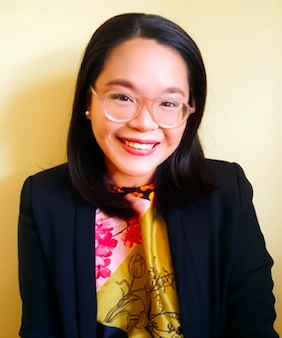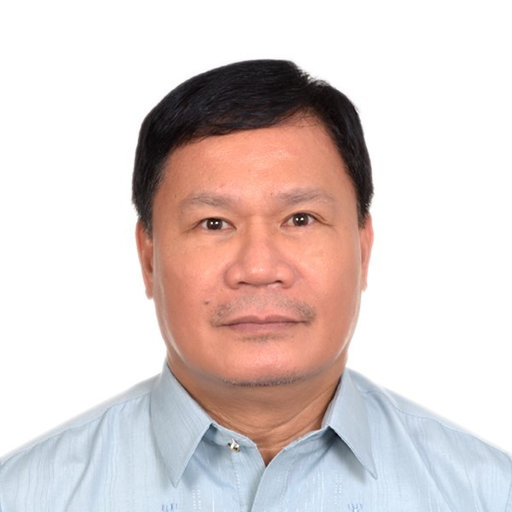Venue
Start
End
Time
28 October 2024, 4:00 PM – 5:00 PM, Singapore Time, ZOOM Webinar
When the Paris Agreement was established, a new foundation for carbon trading was created through Article 6 to aid Parties in the implementation of their mitigation targets and provide avenues for collaboration. Article 6 promises a way for countries to invest in climate actions in other countries and increase global climate ambition to achieve the long-term goals of the Paris Agreement. However, clear, inclusive, and transparent accounting rules and regulations are needed to avoid double counting and ensure that projects abide by the principles that guide the implementation of the Paris Agreement such as ecological integrity, respect for human rights, and climate justice.
Unfortunately, Art. 6 has been relatively behind in coming up with the rules and framework for this system. The framework of international carbon trading was agreed upon in 2021 while the additional reporting rules, registries, and governing bodies were further clarified in 2022. At COP 29, Parties need to agree on common nomenclatures for reporting, modalities for reviewing confidential information, and a verification system for adjustments, among others. Disappointingly, social and environmental safeguards for 6.4- a set of policies, standards, and guidelines that ensure protection from social and environmental risks - will not even be considered until 2028.
Despite the lack of progress in the negotiations, the Article 6.2 mechanism has taken off with numerous bilateral agreements signed. The Art. 6.4 mechanism has also started, albeit more conservatively, with one transfer having been concluded between Switzerland and Thailand. In August 2024, A Memorandum of Agreement was signed between Singapore and the Philippines to collaborate on Article 6, specifically on carbon credits aligned with Art. 6.2. As we move closer to COP 29, it is imperative that we clarify what rules are necessary in order to incentivize more countries to utilize Art. 6 towards achieving the goals of the Paris Agreement.
MODERATOR

Ms Railla Puno
Associate Lead, Climate Change Law and Policy
Railla first developed an interest in international climate law and policy as a law student working for the University of the Philippines Institute for International Legal Studies. Since then, she has attended UNFCCC sessions in various capacities, including as negotiator and legal adviser for the Philippine government, and as Policy Coordinator for Climate Action Network, co-lead of the ENGO constituency. She previously worked for the Climate Change Commission of the Philippines as Legal Services Division Chief where she oversaw the national process for signing and ratifying the Paris Agreement and led the coordination of the Philippine delegation for COP 22 in Marrakesh. Railla has also done extensive research on oceans and climate, climate change and the rule of law, governance of climate geoengineering technologies, REDD+ and agriculture, and human rights and the environment, in collaboration with various intergovernmental organizations, national governments, and civil society groups.
In 2020, Railla obtained her LL.M. degree in Environmental Law, specializing in Global Environmental Law, from Pace University’s Elisabeth Haub School of Law with summa cum laude honors. She also holds a Juris Doctor degree from the University of the Philippines and a Bachelor of Science degree, major in Psychology, from the Ateneo de Manila University. She is a member of the Philippine bar since 2015.
SPEAKERS

Albert Magalang
Chief of Climate Change Service, Dept. of Environment and Natural Resources
Art. 6 Lead Negotiator for the Philippines
Asia Pacific Regional Representative to the UNFCCC-DNA Forum Chairing Committee
Mr. Magalang is presently the Chief of the Climate Change Service of the Department of Environment and Natural Resources. He is a regular member of the Philippine delegation to the sessions of the UN Framework Convention on Climate Change (UNFCCC) and as the country representative in the ASEAN Working Group on Climate Change. He also represents the Philippines at the sessions of the UN Environment Assembly. He served as the Asia-Pacific regional representative to the UNFCCC-DNA Forum Chairing Committee; and as global Co-Chair representing the developing countries. He is the Philippines’ lead negotiator on Article 6 of the Paris Agreement and served as the co-facilitator of the negotiations on Article 12 (or the Action on Climate Empowerment).

Virender K. Duggal
Principal Climate Change Specialist
Asian Development Bank
Mr. Virender Kumar Duggal is a Principal Climate Change Specialist in the Sustainable Development and Climate Change Department at the Asian Development Bank (ADB). In this role, he is leading ADB’s work on carbon pricing. Mr. Duggal is an accomplished professional with a proven track record in the areas of climate change mitigation, carbon finance, and international trade cooperation. He has extensive experience working in multilateral, public, and private sector institutions in the areas of trust fund management, portfolio management, capacity building, advisory services, project development, technology transfer/diffusion, and strategic collaborations. Mr. Duggal has a wide range of leadership and teamwork experience in multicultural environments across Asia, Europe, and Africa. He is currently leading ADB’s Carbon Market Program which provides carbon finance and technical capacity building support for mitigation actions in the Asia and Pacific region. ADB’s Carbon Market Program, among others, includes (i) the Future Carbon Fund, (ii) the Japan Fund for Joint Crediting Mechanism, and (iii) the Article 6 Support Facility.

Yi Jun Mock
Senior Manager (Global Partnerships)
National Climate Change Secretariat
Strategy Group, Prime Minister’s Office
Singapore
Mock Yi Jun is Senior Manager (Global Partnerships) at the National Climate Change Secretariat, under the Strategy Group of the Prime Minister’s Office. In this role, he helps drive Singapore’s climate change cooperation with international partners in areas such as carbon markets, energy transition, and low-emissions technologies. He served as Singapore’s Lead Negotiator for the first Global Stocktake of the Paris Agreement at the United Nations Framework Convention on Climate Change (UNFCCC), and currently serves as Lead Negotiator for Article 6 (Carbon Markets). Yi Jun holds a concurrent appointment with the Policy Analytics Office, working to strengthen whole-of-government capabilities in data-driven policymaking.
Starting his career with the Ministry of Foreign Affairs as Desk Officer (Hong Kong and Taiwan), Yi Jun also undertook stints working on Singapore’s 2018 ASEAN Chairmanship, covering the United Nations Human Rights Council at Singapore’s Permanent Mission in Geneva, and exploring policy futures at the National Security Coordination Secretariat. He represents the Singapore Government as a Council Member of the Climate Action Data Trust, and as Singapore’s National Focal Point to the UNFCCC for Article 6.8 (Non-Market Approaches).
He holds a Master of Management Science in Global Affairs from Tsinghua University, where he studied as a Schwarzman Scholar and BP Fellow, and a Bachelor of Science in Politics and International Relations from the London School of Economics and Political Science.

Beatriz Granziera
Senior Policy Adviser
The Nature Conservancy
Beatriz Granziera is a Senior Policy Advisor at The Nature Conservancy, where she represents TNC in international forums related to UN negotiations, especially REDD+ and carbon markets. She is the co-author of the papers Article 6 Explainer, Options for Corresponding Adjustments, and International REDD+ Standards Tool. Before joining TNC, she worked as a Teaching Fellow at Yale University and also served as a cabinet advisor at the São Paulo State Environmental Secretariat in Brazil. She holds a Master’s in Environmental Policy from Yale University and a Master’s in Environmental Law from the Catholic University of São Paulo.


